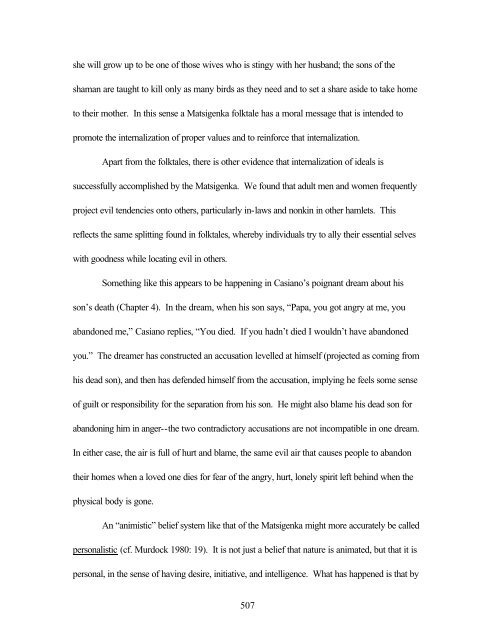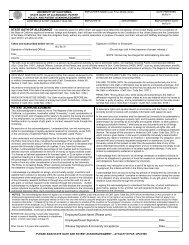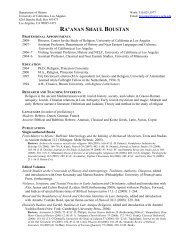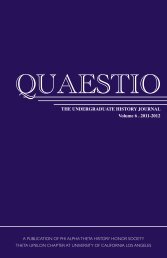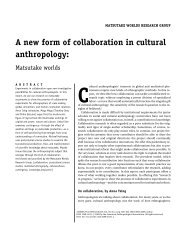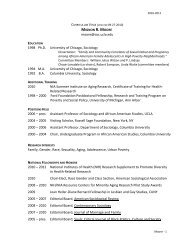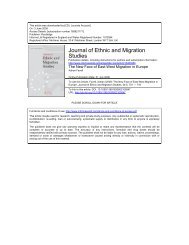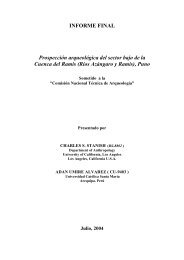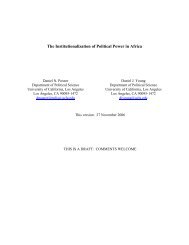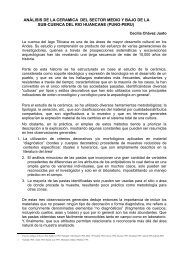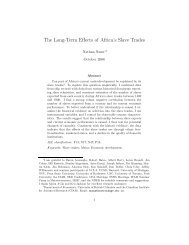433 Chapter Seven Cosmos For the Matsigenka of Shimaa, kameti ...
433 Chapter Seven Cosmos For the Matsigenka of Shimaa, kameti ...
433 Chapter Seven Cosmos For the Matsigenka of Shimaa, kameti ...
Create successful ePaper yourself
Turn your PDF publications into a flip-book with our unique Google optimized e-Paper software.
she will grow up to be one <strong>of</strong> those wives who is stingy with her husband; <strong>the</strong> sons <strong>of</strong> <strong>the</strong><br />
shaman are taught to kill only as many birds as <strong>the</strong>y need and to set a share aside to take home<br />
to <strong>the</strong>ir mo<strong>the</strong>r. In this sense a <strong>Matsigenka</strong> folktale has a moral message that is intended to<br />
promote <strong>the</strong> internalization <strong>of</strong> proper values and to reinforce that internalization.<br />
Apart from <strong>the</strong> folktales, <strong>the</strong>re is o<strong>the</strong>r evidence that internalization <strong>of</strong> ideals is<br />
successfully accomplished by <strong>the</strong> <strong>Matsigenka</strong>. We found that adult men and women frequently<br />
project evil tendencies onto o<strong>the</strong>rs, particularly in-laws and nonkin in o<strong>the</strong>r hamlets. This<br />
reflects <strong>the</strong> same splitting found in folktales, whereby individuals try to ally <strong>the</strong>ir essential selves<br />
with goodness while locating evil in o<strong>the</strong>rs.<br />
Something like this appears to be happening in Casiano’s poignant dream about his<br />
son’s death (<strong>Chapter</strong> 4). In <strong>the</strong> dream, when his son says, “Papa, you got angry at me, you<br />
abandoned me,” Casiano replies, “You died. If you hadn’t died I wouldn’t have abandoned<br />
you.” The dreamer has constructed an accusation levelled at himself (projected as coming from<br />
his dead son), and <strong>the</strong>n has defended himself from <strong>the</strong> accusation, implying he feels some sense<br />
<strong>of</strong> guilt or responsibility for <strong>the</strong> separation from his son. He might also blame his dead son for<br />
abandoning him in anger--<strong>the</strong> two contradictory accusations are not incompatible in one dream.<br />
In ei<strong>the</strong>r case, <strong>the</strong> air is full <strong>of</strong> hurt and blame, <strong>the</strong> same evil air that causes people to abandon<br />
<strong>the</strong>ir homes when a loved one dies for fear <strong>of</strong> <strong>the</strong> angry, hurt, lonely spirit left behind when <strong>the</strong><br />
physical body is gone.<br />
An “animistic” belief system like that <strong>of</strong> <strong>the</strong> <strong>Matsigenka</strong> might more accurately be called<br />
personalistic (cf. Murdock 1980: 19). It is not just a belief that nature is animated, but that it is<br />
personal, in <strong>the</strong> sense <strong>of</strong> having desire, initiative, and intelligence. What has happened is that by<br />
507


